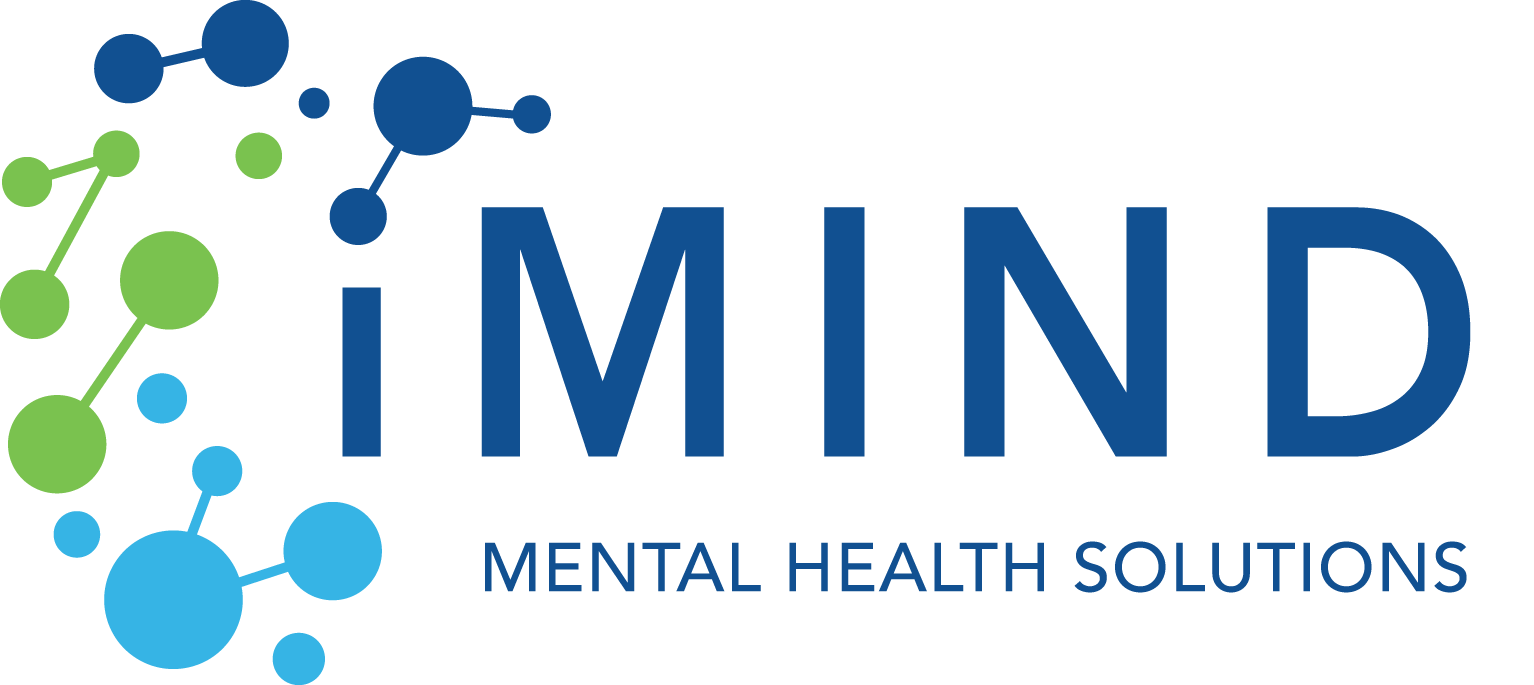What is Mental Health IOP?
iMind Mental Health Solutions Resource

As with everything in life, mental health issues exist on a continuum. For less severe symptoms that still allow for functioning in life, therapy sessions are an excellent tool for bolstering mental health. Sometimes, though, it helps to have more support. Mental health intensive outpatient programs can fill that gap… and have proven helpful in keeping people out of mental health facilities.
What is a Mental Health IOP?
“Attending an IOP can be similar to going to school: ‘You learn skills to better cope and manage whatever is going on with you, [to get] a better understanding of what’s going on… That is something that IOPs can do really well, in part because there’s a lot of psychoeducation.’”
– Psychiatrist Jessica Gold, MD, assistant professor, Washington University, in an interview with Wellandgood.com
As its name suggests, a mental health intensive outpatient program (IOP) is a more intensive form of the traditional outpatient model, where a client visits a therapist every week or every other week. However, it is less intensive than inpatient care, which involves round-the-clock psychiatric attention delivered while clients reside at a mental health treatment facility.
A convenient and helpful option that falls between the two levels of care, mental health IOP involves professional mental health treatment and education in a structured setting. Typically, sessions are a several hours a week (three to 21).
Why Mental Health IOPs Are Important
“In general, IOPs are better than inpatient programs, all things being equal, because it takes positive effort to show up, and participants experience themselves not as passive recipients of care, but as empowered collaborators in it.”
– David McPhee, PhD in Psychology, University of Minnesota, What’s it Like to go to an IOP (intensive outpatient program)?, Quora
Mental health IOPs are attractive for a variety of reasons.
- Flexibility: One of the biggest advantages of a mental health IOP is flexibility. Patients can choose from day or evening sessions, making it easier to prioritize their personal and professional lives. With mental health IOP, individuals can get the help they need without feeling overwhelmed by the commitment.
- Affordable Alternative: IOPs are typically more affordable than inpatient treatment facilities due to lower overhead expenses such as housing and food. This financial accessibility allows more people to benefit from treatment without significant financial burdens.
- Peer Support: IOP programs often include group therapy sessions with individuals who share similar struggles and experiences. These interactions can foster social connections in a safe, therapeutic environment. This support network can further aid in recovery and healing.
- Holistic Approach: Many IOPs use a holistic approach that combines various therapies like cognitive-behavioral therapy (CBT), dialectical behavior therapy (DBT), 12-step principles, and medication management. This comprehensive approach tailors each therapy to an individual’s unique requirements, giving them the best opportunity to achieve relief from mental health symptoms.
- Seamless Care: Mental health IOPs bridge the gap between conventional outpatient therapy and more restrictive inpatient care. This provides a smooth transition between various levels of care, ensuring uninterrupted support for individuals who need it.
Do Mental Health IOPs Work?
Intensive outpatient programs (IOPs) have been found to be effective in treating a wide range of mental health disorders.
A meta-analysis conducted by Duckworth et al. (2017) showed that IOPs reduced psychiatric symptoms and improved overall functioning, with an average success rate of 63%.
Mental health IOP programs often quote success rates higher than that on their websites. In fact, you can find programs claiming that up to 94% of patients not readmitting to a higher level of care after attending mental health IOP.
This highlights the potential benefits of IOPs as a viable option for individuals seeking support for their mental health issues.
It is crucial, however, to mention that results may vary depending on factors such as individual commitment, program duration, and quality of care provided.
Ther Structure of a Mental Health IOP: How Long is It? How Many Sessions per Week?
“Working through the trauma of that in weekly therapy could have taken years. But being in a full-time program gave me the time and space to really focus on healing. I was able to talk through my fears of having episodes with my mental health later in my life.”
– Wellandgood.com
IOPs generally require a higher level of commitment than traditional outpatient programs. While specific schedules may differ, mental health IOPs can be up to three hours of therapy a session, once to several times per week.
The duration of an IOP is typically eight to twelve weeks or longer, depending on individual progress and treatment goals.
Mental health IOPs can include one or more types of therapy, including one-on-one therapy, group therapy, and family therapy.
Individual Therapy
Individual therapy serves as a cornerstone of IOPs. These one-on-one sessions allow patients to build a rapport and establish trust with their therapist. Together, they explore personal issues and challenges while developing skills necessary for achieving long-term recovery. The frequency of individual therapy typically ranges from once to twice per week during the program.
Group Therapy
Group therapy plays a significant role in IOPs by facilitating valuable peer support and collaboration in addressing shared struggles and experiences. These sessions often entail skill building exercises, psychoeducational components, or discussion groups addressing topics such as relapse prevention, stress management, anger management, communication skills, and healthy relationships. Group meetings usually occur multiple times per week throughout the program.
Family Therapy
Family involvement is crucial in achieving effective results during intensive outpatient treatment. Family therapy sessions strengthen family bonds while assisting in repairing any damage caused by past behaviors or misunderstandings. Through these sessions, families learn how to support their loved one’s recovery journey while also addressing their own emotional needs.
Treatment Modalities Used in Mental Health IOPs
IOPs offer a diverse range of evidence-based treatment modalities personalized for each individual’s unique needs. Some common modalities include:
- Cognitive-Behavioral Therapy (CBT): CBT assists patients in identifying and adjusting negative patterns of thought that cause unhealthy behaviors.
- Dialectical Behavior Therapy (DBT): DBT focuses on enhancing emotional regulation, cultivating mindfulness, improving interpersonal effectiveness, and building distress tolerance.
- Motivational Interviewing: This method assists clients in exploring and overcoming ambivalence toward change.
- Family Systems Therapy: This therapy aims to improve communication and redefine relationships within the family structure.
- Mindfulness-Based Therapies: Techniques such as meditation, deep breathing exercises, and guided imagery promote mental well-being and self-awareness.
- Creative Therapies: Art, music, or dance therapies provide alternative means of self expression and emotional processing.
Who Would Benefit from a Mental Health IOP?
“Now, similarly to the motionless creek, a raging storm of disappointment and fear has left me at a standstill. I need the desire to face another day. IOP is offering the tools to find that hope, joy, and sense of purpose.”
– Alwaysthefight.com
There are several situations where an IOP might be appropriate.
- Transitioning from Inpatient Treatment: Individuals who have completed inpatient treatment may benefit from an IOP during their transition back to daily life. The program helps maintain the structure and support gained during inpatient care while encouraging independence.
- Inability to Commit to Full-Time Treatment: For those who cannot attend residential programs due to personal or professional obligations, an IOP can offer a higher level of intensity of outpatient treatment while allowing flexibility for maintaining daily routines.
- Co-occurring Disorders: Individuals who struggle with both mental health disorders and substance abuse issues may particularly benefit from participating in an IOP. The integrated approach to treatment addresses both sets of challenges simultaneously.
Who Qualifies for a Mental Health IOP?
“Taking control of conflicting emotions and following through with processes I am learning in IOP include opening the blinds in my apartment each day. Positive, upbeat music plays in the background. To-do lists include art along with chores, and I try my best to complete each task. Violent television is avoided as it triggers high anxiety and self-destructive urges.”
– Alwaysthefight.com
Mental health IOPs can be an excellent option for patients who:
- Meet Medical Necessity Requirements: Participants must demonstrate a medical need for intensive treatment. This may include mental health disorders, substance abuse issues, or co-occurring disorders.
- Are Stable: Individuals seeking to join an IOP must be stable enough to not require 24/7 supervision or hospitalization. They should be able to maintain their safety and wellbeing during non-program hours.
- Are Committed to Improving Their Mental Health: Participants must show motivation and dedication towards their recovery process. This includes a willingness to attend scheduled sessions, engage in therapy, and work on personal growth.
- Have Access to a Support System: Having a reliable support system outside the program is essential for continued success. This could be family members, friends, or peers who provide encouragement and accountability.
Choosing the Right Mental Health Intensive Outpatient Program
Choosing the right Intensive Outpatient Program (IOP) is crucial for patients looking to improve their mental health. With more and more options becoming available, deciding which one to choose can be overwhelming. Here are some things you should consider when selecting the mental health IOP for you.
Is it in a Convenient Location?
The location of the mental health IOP plays a significant role in your recovery process. Consider a program that is easily accessible from your residence or workplace. This will make it easier to arrive on time and attend sessions consistently. Also, take into account the surrounding environment and its impact on your recovery journey. An ideal setting should provide a supportive, serene, and motivating atmosphere that encourages healing.
What Therapies are Offered?
An effective IOP will adopt various evidence-based therapies tailored to meet individual needs. These may include: cognitive behavioral therapy (CBT), dialectical behavior therapy (DBT), group therapy, family therapy, and dual diagnosis treatment. Ensure that the program offers a combination of therapies proven to be effective in addressing your specific requirements.
What are the Credentials of the Staff?
The quality of treatment largely depends on the expertise and professionalism of the staff members providing care. Research the qualifications of therapists, addiction specialists, psychiatric nurses, doctors, and social workers involved in your potential IOP. Ensure that they have appropriate licenses and certifications justifying their expertise in treating specific addiction and mental health concerns.
What Does it Cost? Does Insurance Cover It?
It’s crucial to choose an IOP that aligns with your financial capabilities. Determine if your insurance plan covers at least a part of the IOP costs before committing yourself to a program. Most insurance providers consider rehab services as essential healthcare benefits; however, every policy may have different coverage details. Opt for an affordable IOP without sacrificing the quality of the services offered.
The Bottom Line
If you or someone you know is considering a mental health IOP, take the time to research various options and speak with mental health professionals in your area. You may want to attend a trial session as well, if the program and your insurance will allow. With a little effort, it isn’t too challenging to find the right program for your individual needs.
- Duckworth MP. Connolly M., & Feiner BG. (2017), A meta-analysis of the efficacy of Intensive Outpatient Programs: Modality comparisons, treatment outcomes and clinical implications. Journal of Clinical Psychology, 73(9), 1195-1212.
- Isaac, P. J. (2020, September 21). I Spent Three Months in Intensive Outpatient Group Therapy. Well+Good.
- Treatment Episode Data Set | CBHSQ Data. (n.d.). Substance Abuse and Mental Health Services Administration
- Verdeli, H. (2016). Global Mental Health: An Introduction. Journal of Clinical Psychology, 72(8), 761–765.
- Virden, N. (2020, May 3). CHANGING DIRECTION: My Experience in an Intensive Outpatient Program (IOP). Always the Fight.
- What’s it like to go to an IOP (intensive outpatient program)? (n.d.). Quora
Latest News
-
Top 10 Questions About Art Therapy for Mental Health
Art therapy has recently gained recognition for its unique blend of healing therapy and personal expression. Despite its growing popularity, there seems to be some misunderstanding about what art therapy entails, who it can benefit, and how it differs from other forms of therapy.
-
ADHD Strengths: The Positive Side of Attention Deficit Hyperactivity Disorder
Scattered minds, fidgety bodies, and difficulty focusing. Attention Deficit Hyperactivity Disorder (ADHD) often gets painted in shades of struggle. But what if there’s a brighter side to the story? What if, beneath the challenges of ADHD, lie unique strengths just waiting to be unlocked?



